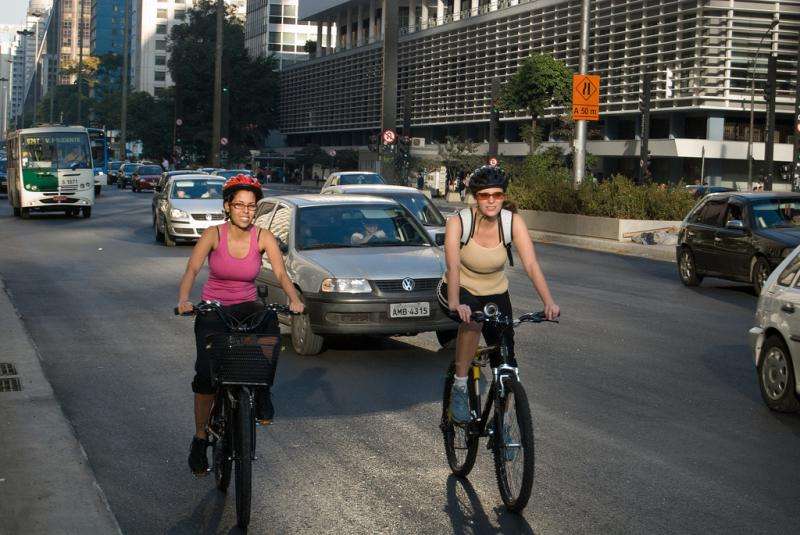“Negative attitudes towards cyclists and the perception of other drivers' aggressive behaviour towards them were linked with aggressive behaviour towards cyclists,” Dr Fruhen says. Credit: Fernando Mafra
A Perth psychologist has delved into the testy relationship between motorists and cyclists, determining drivers are more likely to be unpleasant to bike riders if they think fellow motorists are behaving aggressively towards cyclists on the road.
A recent study had 276 people complete an online questionnaire about their attitudes towards cyclists, perception of other drivers' aggressive behaviour towards cyclists and how often they engage in such behaviour.
UWA Centre for Safety research fellow Laura Fruhen says the study found more negative attitudes concerning cyclists were linked to a higher frequency of antagonistic behaviours.
These behaviours include cutting cyclists off, sounding the horn, and verbally attacking those on bikes.
"Negative attitudes towards cyclists and the perception of other drivers' aggressive behaviour towards them were linked with aggressive behaviour towards cyclists," Dr Fruhen says.
The study did not find that drivers who were aggressive towards cyclists were more likely to be risky drivers.
"It seems to be the case that actions towards cyclists are derived from attitudes and perceptions of others' behaviours that are specific to cyclists, rather than more general driving related factors," she says.
Researchers compared the responses of cyclists and non-cyclist drivers to gauge whether one of the two groups are more likely to show road rage towards those on bikes.
"Quite interestingly, there was no difference in the aggressive behaviour towards cyclists but the two groups' attitudes towards cyclists differed in that attitudes were more negative in non-cyclist drivers," Dr Fruhen says.
"We also found in those two groups, there was a difference in terms of the contributing factors towards aggressive behaviours and the things that were associated with it.
"In drivers who also cycle, their tendency to show aggressive behaviour had a stronger association with negative attitudes towards cyclists, whereas for those who don't cycle it was more about others' aggressive behaviour towards cyclists as they perceive it."
Dr Fruhen says drivers' motives for being hostile towards cyclists could be explained by the 'zero risk theory', which proposes drivers need to progress smoothly in traffic and slower traffic participants, like cyclists, may annoy them.
"As a consequence, cyclists may be perceived as a nuisance on the road."
Dr Fruhen says the government and the public have an interest in promoting cycling, particularly in Perth.
To change negative attitudes towards cyclists, she says campaigns could work to target psychological attributes that lead to the aggressive behaviour.
More information: "Car driver attitudes, perceptions of social norms and aggressive driving behaviour towards cyclists," Accident Analysis & Prevention, Volume 83, October 2015, Pages 162-170, ISSN 0001-4575, dx.doi.org/10.1016/j.aap.2015.07.003
Provided by Science Network WA
This article first appeared on ScienceNetwork Western Australia a science news website based at Scitech.






















